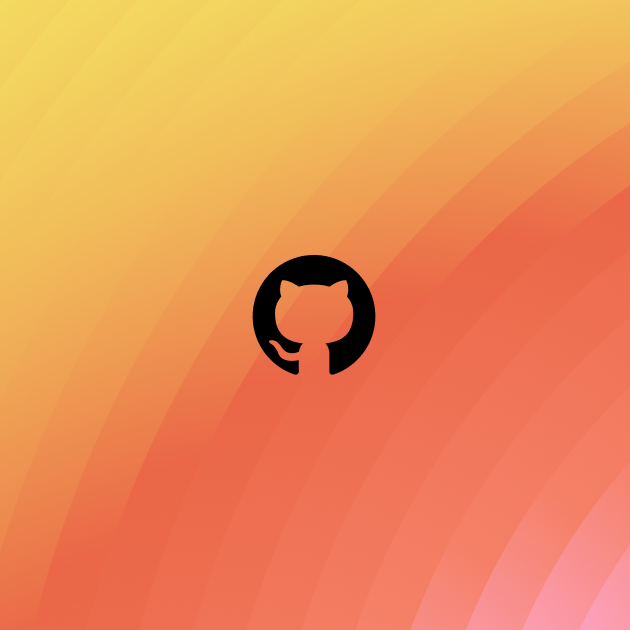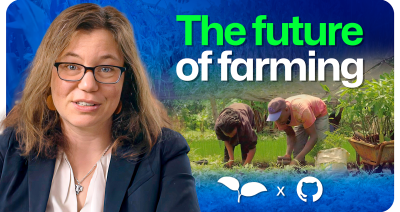At GitHub, we’re committed to building a more diverse and inclusive tech industry through our open source community, All In. We believe advancing diversity, equity, and inclusion (DEI) in open source communities makes for better, more innovative products that serve a broader audience and have the potential to positively impact society as a whole.
Today, as part of All In for Maintainers, we are launching our pilot of the All In CHAOSS DEI Badging initiative. If you’re unfamiliar, All In for Maintainers is a program we launched earlier this year with a goal of making the open source community more inclusive through its most influential and culture setting figures: maintainers. Read on to learn about why we’re introducing badging, how to get involved, as well as what else you can do to get involved with All In for Maintainers.
When building All In for Maintainers we conducted a Listening Tour and survey to better understand the state of inclusivity today. A key finding from our research was that maintainers have no way of identifying communities and projects who exemplified best practices for DEI work within their communities.
The All In CHAOSS DEI Badging Initiative, in partnership with CHAOSS, is our first step towards solving this problem. The program allows open source maintainers to signal their ongoing efforts to improve and prioritize DEI within their communities and have the ability to recognize those who are leading the way.
The Badging initiative begins with a single file—a DEI.md file. Much like the evolution of a CODE_OF_CONDUCT.md file that surfaces a project’s documentation about expected behavior and consequences in one central place, the DEI.md file surfaces a project’s attention to four of CHAOSS’s DEI metrics:
- Project Access. To what extent does your project provide access and help those with various access needs?
- Communication Transparency. How transparent is project communication?
- Newcomer Experience. How well does an open source community attend to welcoming newcomers?
- Inclusive Leadership. How well is a project and community set up for diverse leadership?
Maintainers will be asked to go through a reflective process in which they expand upon how the project attends to and prioritizes these four areas. They’re asked to place this file somewhere in their project’s repository for the community to access and validate, and then are asked to provide a feedback loop for community comments.
Once the DEI.md file has been published, a project maintainer will be able to apply for a Bronze level DEI Badge. Applying for a badge will trigger an automatic scan of a project’s DEI.md file for appropriate and thoughtful language and will issue a badge if the file is deemed passable. A deeper scan of the project’s repository will also take place and a report of suggestions may be generated. For instance, a report might indicate that a project could be more inclusive in their communication, or respond to issues a little quicker, as these are common reasons marginalized contributors may leave a project.
In future badging levels, Silver, Gold, and Platinum, more and more metrics will be included in the DEI.md file. By the time a project reaches the Platinum level, they will have a robust file to share with their communities that document the project’s attention to as many as 15 different areas.
This program is not meant to pass judgment on a project’s ability to attend to the four metrics, but rather give a project cause to self-reflect and answer questions that perhaps no one in project leadership has asked themselves before. It’s meant to signal to potential contributors, funders, and organizations the work that has been done by the project.
The All In CHAOSS DEI Badging initiative will not access or expose private or personally identifiable information. Project reports are only sent to the project maintainer who applied for the badge and all data will be scrubbed and anonymized before sending. Project maintainership will be verified prior to awarding any badge or any report generation.
And finally, the initiative is not meant to be a “one and done” type of exercise, but rather to support a community’s DEI journey. We want to see a project progress from level to level and help maintainers do so.
We want to continue to build this program collaboratively with the greater open source community!
We need a wide variety of projects from all over the world to help us test the pilot. We’re also looking for maintainers who are interested in developing metrics for the forthcoming tiers of the initiative. No matter where you are on your DEI journey, you can sign up to help us.
As with all of the programs we’ve launched for All In, we have created the All In CHAOSS DEI Badging Initiative with the open source community for the open source community. We hope the DEI Badging Initiative, together with the DEI Resource Hub, will help foster inclusive communities to further empower developers. Stay tuned as we plan to launch a third program, the All In Community Collaboration Project that will connect small projects with larger, more well-resourced projects to address common DEI project needs.
To learn more about All in for Maintainers and our new pilot, check out the GitHub’s Maintainer Month Panel Discussion or the All In website. We’re excited to see open source communities become more inclusive and can’t wait for you to join us on this journey.



